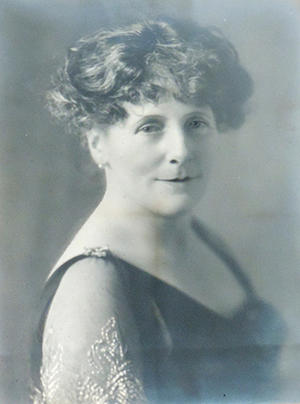The First World War left behind a legacy of empowered Worcestershire women who went on to influence many different spheres of society, a cultural historian says.

Professor of Cultural History, Maggie Andrews, believes that this transformation of housewives across the country into social reformers was one of the conflict's greatest legacies.
Professor Andrews will tell the stories of some of those local women who made their mark in the post-war era in a free talk and exhibition at The Hive on January 18, 6pm to 7pm.
The University of Worcester scholar says the 1914-1918 war enabled a number of women in the county to develop their skills and spheres of influence through voluntary work and they went on to be politically or socially active.
Working with local community groups, Professor Andrews has researched these women's lives using local newspapers, local and national archives, personal records and also birth, death and census records.
Titled Volunteers and Voters: World War 1, the talk includes Lady Isabelle Margesson, Edith Hooper, Mary Pakington and Annie Rusher who became Justices of the Peace, ran women's organisations, wrote plays or campaigned for improvements in mother and child welfare in the inter-war years.
Professor Andrews said: "There has been much attention given to the potential changes that work in munitions, on the land and in hospitals may have made to women's lives in the First World War, but perhaps it was for the majority of domestic women " housewives - that the war had the greatest legacy.
"The war increased the number of opportunities to take up roles beyond their home. They organised charities, Women's Institutes, raised money for wounded soldiers and vulnerable groups. They turned their homes into convalescence hospitals or helped out at others" hospitals, they entertained injured troops and sent packages to POWs, they organised mother and baby clinics, national kitchens and rural industries ostensibly all in the interests of supporting the war effort. "
Professor Andrews said through voluntary work women developed confidence and skills, such as speaking in public, organising events and chairing meetings and in the post-war era this continued and extended to local politics.
"It prepared them and gave them the confidence to engage in politics when they got the vote in 1918," Professor Andrews added.
Booking is recommended by visiting www.thehiveworcester.org.
Photograph: Edith Hooper, by kind permission of Pershore Women's Institute